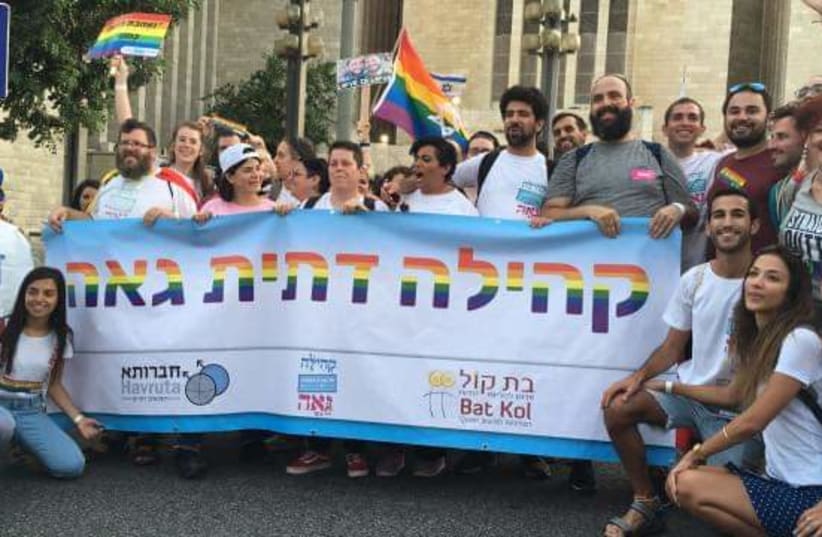Along with the Jerusalem Open House for Pride and Tolerance, The Agudah, and the Bat-Kol Association, the Israeli Reform Movement submitted the petition which demands that the Communication Ministry puts an end to the practice of allowing the Rabbinical Communications Committee to block calls from going through to LGBTQ+ hotlines from their kosher phones.
A kosher phone is a phone with limited capabilities – some will only allow the user to make phone calls, and the ability to send texts is also blocked.
The Rabbinical Communications Committee monitors the Israeli kosher phone industry and, by working with the cellular companies and the Communications Ministry, is able to block calls to numbers they deem to be inappropriate.
This includes helplines and resource centers for the LGBTQ+ community.
Through attorneys Orly Erez Lechovsky and Meital Arbel, both from the Reform Center for Religion and State, the organizations filed the petition which demanded that the law be enforced properly by the cellular companies currently participating in this practice.
"The thought of a man, woman, boy or girl who needs help but is unable to use the basic tool for communication – the cell phone – keeps me awake at night. If we have learned anything in the last year, it is that the extremism of ultra-Orthodox rabbis, with the backing of a state which turns a blind eye to their actions, is life threatening," said Noa Setat, director of the Reform Center for Religion and State.
"Attempting to lead a religious lifestyle by withholding information and choices from hundreds of thousands of people is bullying, unjust, and doomed to failure. It is non-Jewish, immoral and to a large extent also inhumane."
Communications Minister Yoaz Hendel posted a statement on Twitter on Tuesday evening, in which he pledged to allow "all Israeli citizens, including the ultra-Orthodox public, access to communications infrastructure."
His statement referred to the specific practice carried out by the Rabbinical Communications Committee in which they refuse to allow subscribers to their services to cancel their subscriptions and retain the same phone number, instead requiring them to get a new number if they wish to make a call that has been blocked by the committee.
However, his statement did not clarify if he intends to halt the section of their operations under which they block the numbers of LGBTQ+ hotlines.
"To be free from censorship is a fundamental human right," one person responded to the decision.
The petition is just one of actions which have been taken by Israeli LGBTQ+ organizations over the month of June.
Other recently launched campaigns include a partnership with Google Israel to minimize the damage of conversion therapy by filtering out the Google search results.
Most recently, a coalition of 18 organizations submitted a detailed plan to members of Knesset and the government in which they outlined 15 specific laws pertaining to LGBTQ+ Israelis that they hope to pass or amend legislation on.
